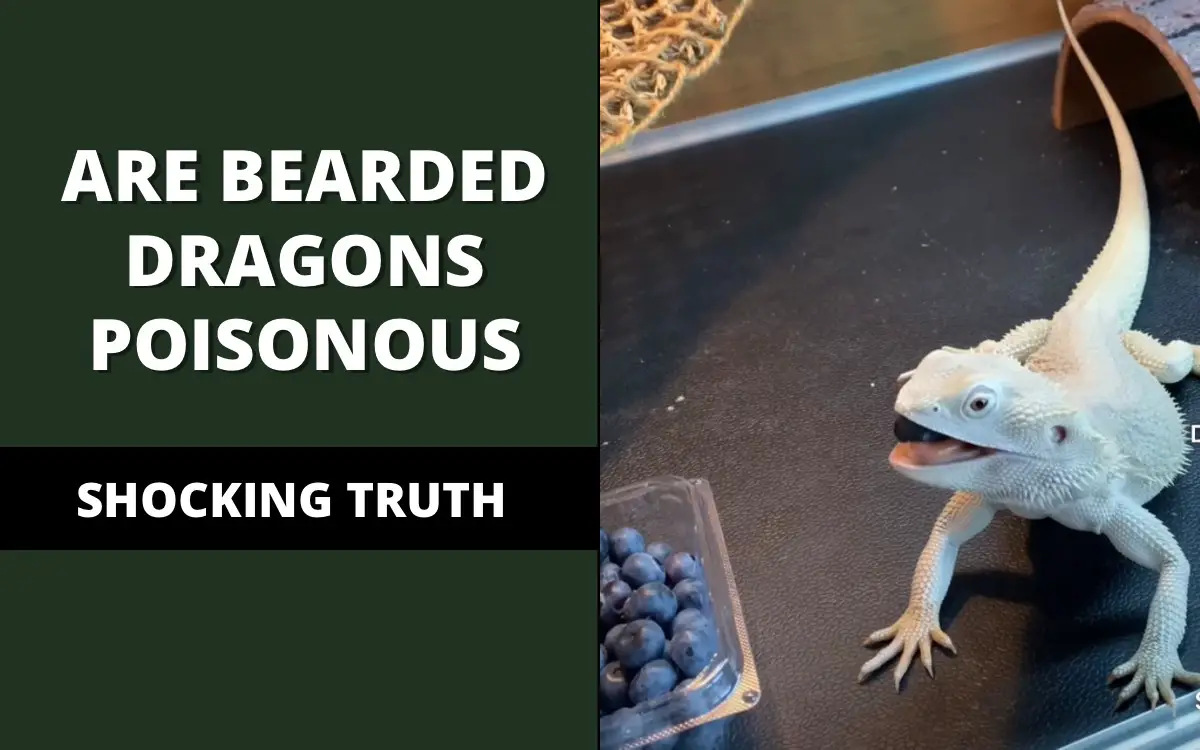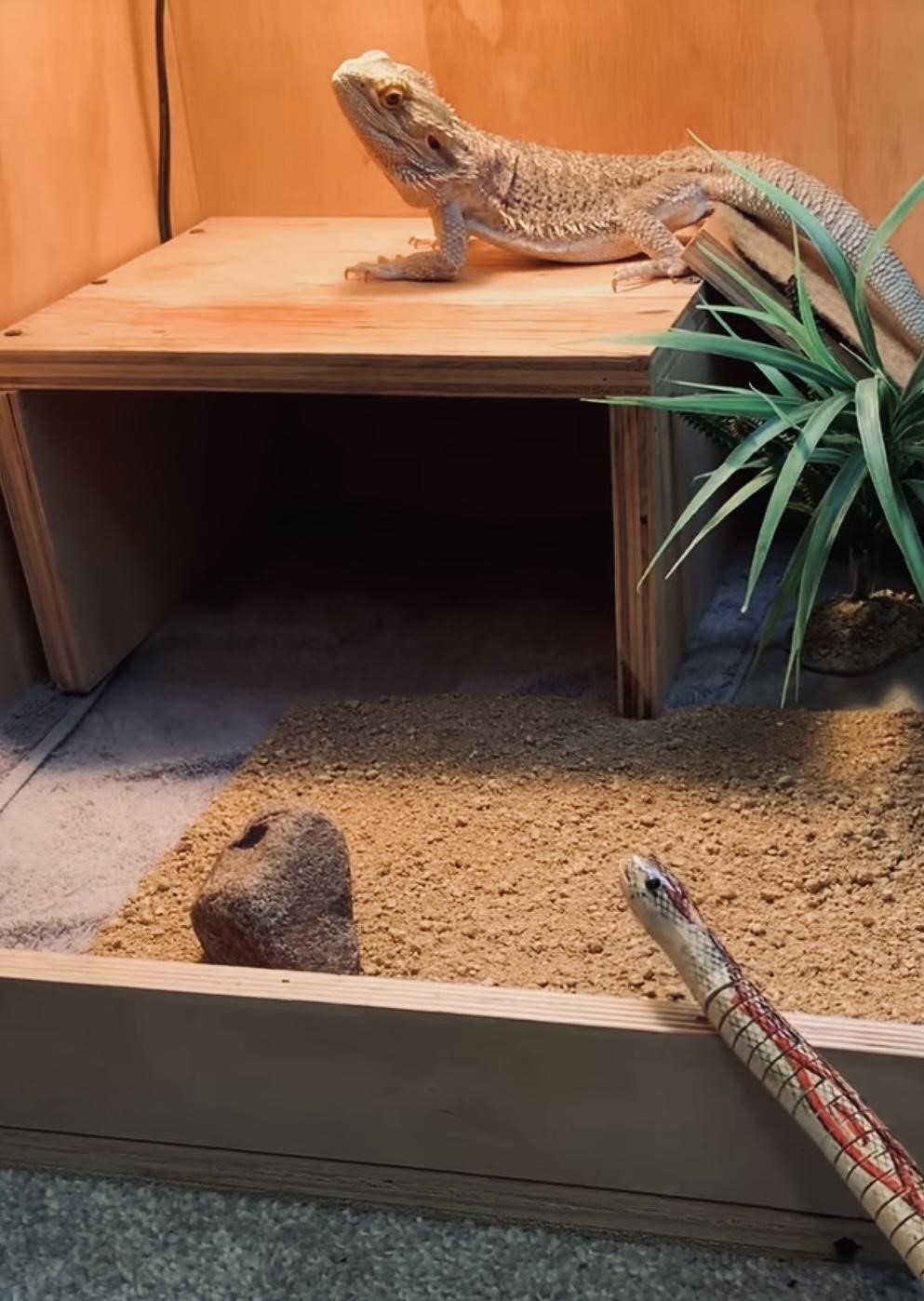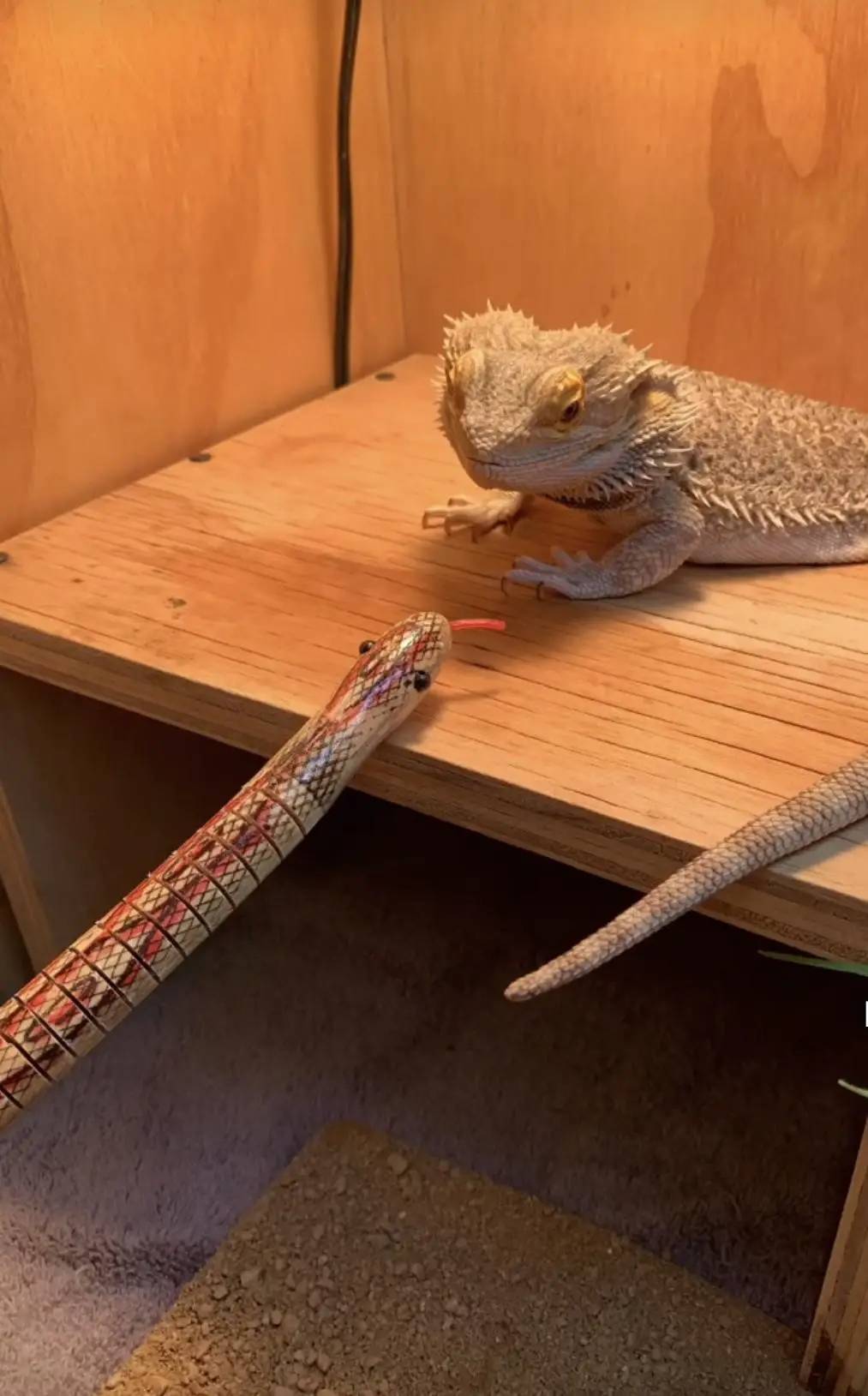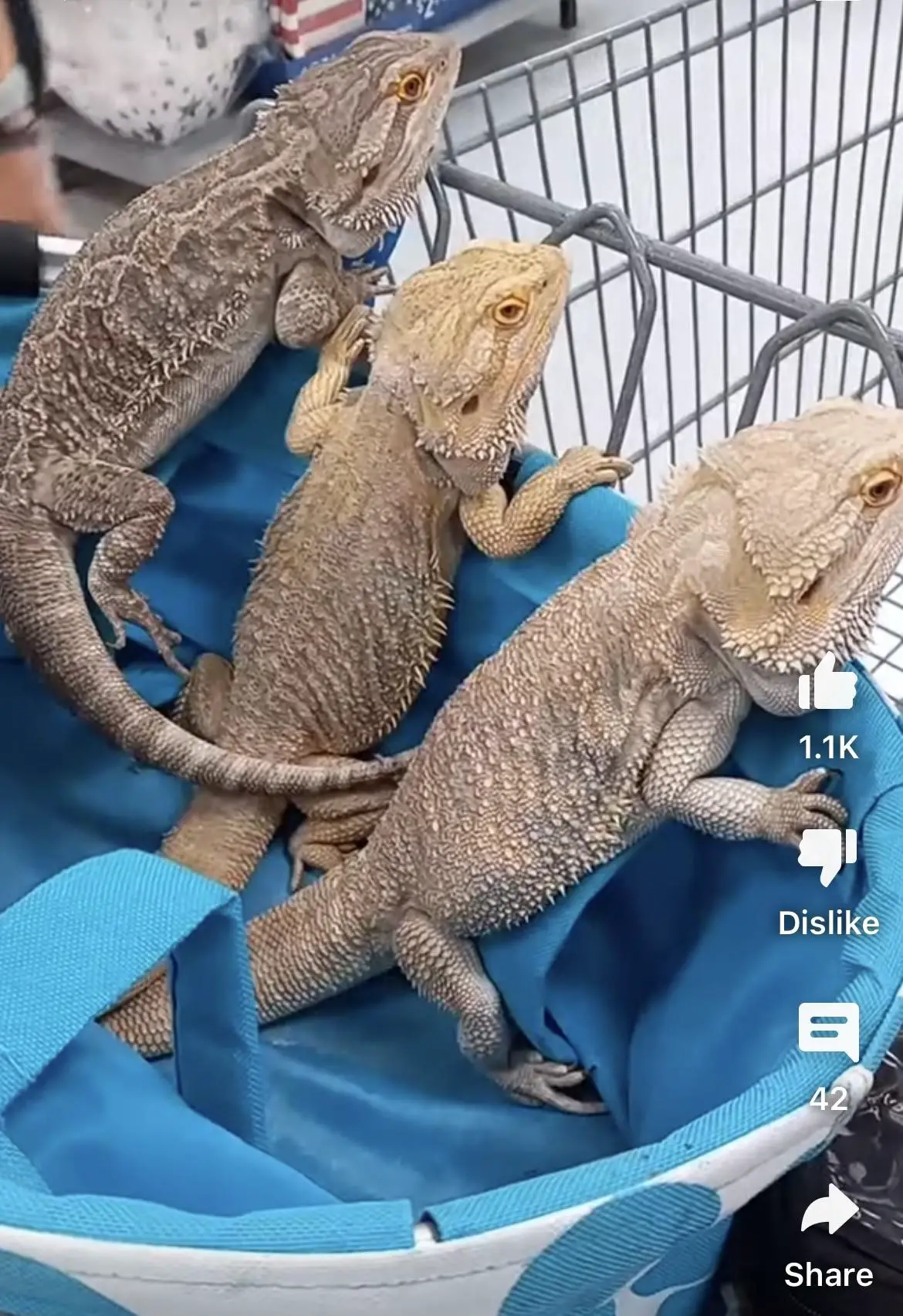Disclaimer: As an Amazon Associate I earn from qualifying purchases. Therefore, we may collect a share of sales from the links on this page, at no extra cost to you!

Are bearded dragons poisonous? This is a question that pet owners and prospective pet owners may be asking themselves. In this article, we will explore the answer to that question in depth, as well as provide other information on bearded dragons that you may find useful.
Bearded dragons are popular pets, and it’s important to know all there is about them before making the decision to bring one into your home. We will cover topics such as their size, diet, lifespan, and more. So if you’re curious about bearded dragons, read on!
Jump to..
So Are Bearded Dragons Poisonous?

The short answer is no, bearded dragons are not poisonous. They don’t have any toxins or venom that can harm humans or other animals. In fact, they have many similarities to cats and dogs in terms of their behavior and needs. Bearded dragons are considered terrestrial animals, meaning they live mainly on the ground.
Bearded dragons are a type of lizard, which is part of why they are sometimes confused with more dangerous varieties. While bearded dragons may look intimidating, they’re actually quite docile and can make great pets for the right family. With the proper care and attention, these lizards can be wonderful companions.
However, it’s important to remember that, like any pet, bearded dragons should be handled with care. It’s recommended that children do not handle these lizards without adult supervision. Additionally, it’s important to understand the habitat requirements for these creatures in order to provide them with a safe and comfortable environment.
Bearded dragons have a fairly lengthy lifespan, with some living up to 15 years. They’re omnivores, meaning they eat both plants and meat. A proper diet is an essential part of keeping your pet healthy and happy. It’s important to provide them with a variety of food items such as vegetables, fruits, insects, and more.
The Bearded Dragon's Venom and Bite

Contrary to popular belief, bearded dragons actually are capable of producing mild venom. However, this venom is not enough to harm humans or other larger animals. Instead, their venom is used mostly when hunting prey. As part of their defense mechanism, the bearded dragon can also bite in self-defense if they feel threatened. Even though their bites aren’t very painful, it is always best to avoid getting bitten by being cautious around them.
When Do Bearded Dragons Bite
When it comes to a bearded dragon’s bite, there are certain instances where they are more likely to do it. If a bearded dragon feels threatened in any way, it is natural for them to want to defend themselves, and biting may be their only option. Here are a few situations when a Bearded Dragon may bite:
- Feels cornered or trapped: Since bearded dragons are usually very calm animals, if they feel trapped or cornered, they may bite out of fear or confusion.
- Feels threatened: If a bearded dragon is held too tightly, picked up from behind, or prodded in the wrong way, it may see this as a sign of aggression and feel the need to bite.
- Feels threatened by another animal: If a bearded dragon feels the presence of a larger or more powerful animal, they may bite out of fear or self-defense.
- Feels overly excited: If a bearded dragon is too excited and unable to control its emotions, it may resort to biting as an outlet for that energy.
- Feels attacked: If a bearded dragon is attacked by another animal, it may bite out of self-defense.
In any of these cases, it is best to remain calm and try to diffuse the situation before it escalates. Bearded dragons are usually very docile animals, but they can become defensive if they feel threatened.
Signs Bearded Dragon is Getting Aggressive

It’s important to pay attention to the behavior of your bearded dragon as they can exhibit signs that they are becoming aggressive. Common behaviors that indicate aggression include:
- Hissing: Bearded dragons may hiss if they feel threatened or intimidated. This is usually accompanied by them puffing up their beards and displaying their claws.
- Tail Twitching: When a bearded dragon twitches its tail, it's generally an indication of aggression. It can also indicate that your pet is feeling uncomfortable or threatened.
- Opening Its Mouth: If your bearded dragon opens its mouth, this could be a sign of aggression. Your pet may also display this behavior if it is feeling threatened or if it is trying to intimidate you.
- Biting: Bearded dragons can bite if they feel threatened or provoked. If your pet bites, it's best to back away from them and give them some space.
- Staring: Bearded dragons may stare intently at you if they are feeling aggressive or threatened. If you notice this behavior, it's best to not approach your pet until it has calmed down.
- Tail Raising: Another sign of aggression is when a bearded dragon raises its tail. This could indicate that your pet is feeling threatened or it is trying to intimidate you.
- Arm Waving: When a bearded dragon waves its arms, this can indicate aggression. Your pet may also wave its arms to try and fend off potential threats.
- Tail Lashing: If your bearded dragon is lashing its tail from side to side, this is a sign of aggression. Your pet may also do this if it feels threatened or intimidated.
If you notice any of these behaviors, it’s important to give your bearded dragon some space and time to calm down. It’s also important to handle them gently and not try to provoke them. Provoking a bearded dragon can increase the risk of it becoming aggressive and potentially harming you or itself.
Conclusion
Bearded dragons are usually very docile animals and they rarely bite. However, if they feel threatened or provoked, they may bite out of self-defense. It’s important to pay attention to the signs your bearded dragon displays so that you can tell when it is becoming aggressive. If you notice any signs of aggression, it’s best to give your pet some space and time to calm down. With proper care and handling, bearded dragons can make wonderful pets that provide years of joy and companionship.
